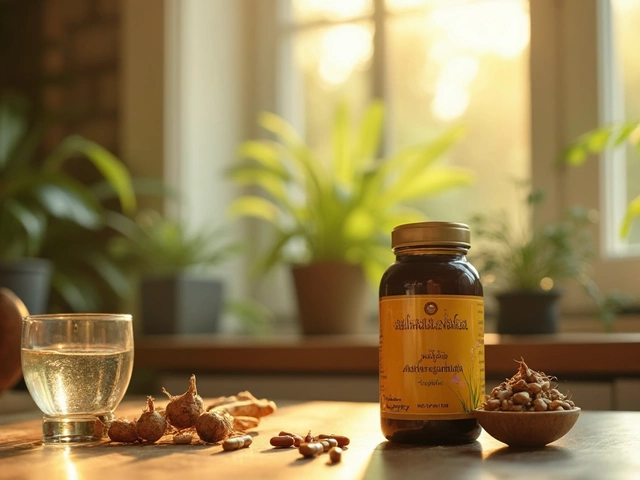Herbs to Avoid: What You Need to Know Before You Use Them
Herbal remedies can feel like a natural shortcut to health, but not every plant is a friend. Some herbs hide harmful compounds that can mess with medicines, trigger allergies, or even damage organs. Below we break down the most risky herbs, point out red flags, and give you simple ways to stay safe.
Top Herbs That Often Cause Problems
1. Kava (Piper methysticum) – Used for anxiety, kava can stress your liver. Even short‑term use has led to serious liver injury, especially when mixed with alcohol or other drugs.
2. Comfrey (Symphytum officinale) – This poultice favorite contains pyrrolizidine alkaloids that are toxic to the liver and can cause cancer with long‑term use. Avoid internal consumption altogether.
3. Ephedra (Ma Huang) – Once popular for weight loss, ephedra spikes blood pressure and heart rate, leading to strokes or heart attacks. Many countries have banned it, and it’s still sold in some shady online stores.
4. Aristolochia (birthwort) – Used in some traditional formulas, aristolochic acid is a known kidney toxin and carcinogen. Even tiny doses can cause irreversible damage.
5. Chaparral (Larrea tridentata) – Marketed for detox, chaparral can cause liver failure and has been linked to severe skin rashes.
How to Spot Potentially Dangerous Herbs
Look for these warning signs before buying or using any herb:
- Claims that sound too good to be true, like “cure all” or “instant weight loss.”
- Missing scientific references or vague “tradition‑only” justification.
- Products that lack clear labeling of ingredients, dosage, or manufacturer details.
- Herbs sold as “raw” or “unprocessed” without any quality testing information.
- Recommendations to mix the herb with prescription drugs without medical supervision.
If any of these appear, walk away or ask a qualified healthcare professional. A quick chat with your doctor or a certified Ayurvedic practitioner can save you from nasty side effects.
When you do need a herbal supplement, choose brands that follow Good Manufacturing Practices (GMP), provide third‑party test reports, and list every ingredient with exact amounts. Transparent labeling is a good sign that the company cares about safety.
Finally, remember that “natural” does not equal “harmless.” Your body reacts to chemicals the same way it does to synthetic drugs. Always start with the lowest effective dose, monitor how you feel, and stop immediately if you notice discomfort, rash, or unusual symptoms.
By staying informed and cautious, you can enjoy the benefits of herbs without risking your health. Stick to well‑studied plants like turmeric, ginger, and peppermint, and keep an eye on reputable sources. Your health deserves the same level of scrutiny you give any prescription medication.





